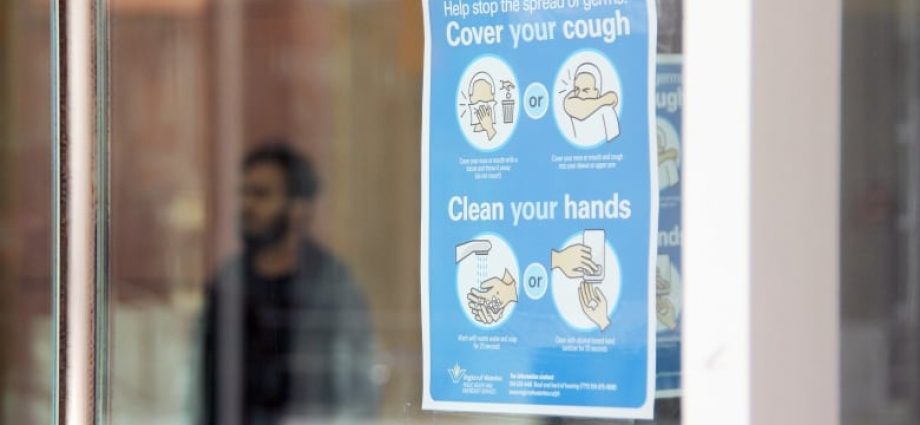Ontario has reported fewer than 100 new daily cases of COVID-19 for two straight days, the Ministry of Health said this morning.
Because of the holiday long weekend, figures for both Sunday and Monday were provided at the same time.
Sunday saw 88 newly-confirmed infections of the novel coronavirus, while 91 were counted for yesterday.
Toronto had the most of any single public health unit today’s update, with 22. The rest of the new cases were scattered mainly throughout southern Ontario, with most health units in the region reporting fewer than five cases.
Windsor-Essex, which learned today that it will remain in Stage 2 of the province’s reopening plan for the time being, confirmed nine additional cases.
All of the figures used in this story are found in the Ministry of Health’s daily update, which includes data from up until 4 p.m. the previous day. The number of cases for any particular region on a given day may differ from what is reported by the local public health unit, which often avoid the lag times in the provincial system.
Ontario has now seen a total of 39,628 confirmed cases of COVID-19 since the outbreak began in late January. Of those, nearly 90 per cent are considered resolved.
Another 242 combined cases were marked resolved over the last two days, Health Minister Christine Elliott said in a series of tweets.
- New study suggests a tiny fraction of Ontario has been infected with COVID-19
-
UPDATED
‘Quadmesters’ for teens and no sports: Reopening plans for Toronto public schools revealed
No new deaths were added to the province’s official COVID-19 death toll on Sunday, while four additional deaths were reported yesterday. The official toll now sits at 2,782. A CBC news count based on data provided by public health units puts the real toll at 2,817 as of yesterday evening.
‘It’s not our plan’: Ford deflects question of safety in schools this fall
At his daily press conference Tuesday, Premier Doug Ford responded to a question about parents of elementary school kids who are concerned about the province’s back-to-school plan for the fall, which includes children staying in one full-time cohort and class sizes remaining at regular, pre-pandemic levels.
He distanced himself from the arrangement, saying it wasn’t his government’s idea.
“It’s not our plan,” Ford said at his daily news conference held in Beamsville on Tuesday, adding it was created by “some of the brightest minds in the world,” citing experts from Toronto’s Hospital for Sick Children and the University Health Network as well as “our health team.”
- Elementary students will be in class full-time come September, Ontario says
“If your kid is sick, the first thing you want to do is bring them to a doctor, and if they’re really sick you bring them to SickKids. They’ve come up with a plan, I respect their plan. They’re the experts, we’re not the experts,” he said.
Ford said he understands that some parents are nervous, and explained that they can always keep their kids at home and opt for online learning.
He also said Ontario has more stringent rules than other provinces.
Dr. Barbara Yaffe, Ontario’s associate chief medical officer of health, echoed Ford Tuesday by describing the province’s back-to-school measures as “quite reasonable” and “stronger than most other provinces.”
“The most important thing for children right now is to get [kids] back into school,” Yaffe said at a COVID-19 update at Queen’s Park.
Yaffe cited a report released by SickKids last week that said keeping students one metre apart was sufficient, whereas the province is hoping to keep students two metres apart with desks being moved “as far apart as possible” to ensure physical distancing.
“The SickKids report actually does talk about one metre may be as good — we are hoping for two.”
Here’s a breakdown of the $309 million the province says it is investing into education for the fall:
- $60 million for masks and personal protective equipment (PPE).
- $80 million for staffing, including hiring up to 1,200 more custodians.
- $25 million for cleaning supplies.
- $10 million for health and safety training.
- $40 million for cleaning supplies and PPE for the school transportation system.
- $23.7 million for lab testing capacity.
- $50 million for additional public health nurses.
- $10 million for mental health supports.
- $10 million for students with special needs.
Social circles for Ontarians remain capped at 10 people, and Ford said it’s not looking like that number will increase any time soon.
“This pandemic’s not over, it’s going to continue to keep going,” Ford warned.
“In my opinion this is going to continue until we get a vaccine. You have to be on guard constantly. As soon as we start getting reckless and careless and everyone’s partying away, it’s going to be a problem.”
- The Canada-U.S. border could be closed for months. Here’s what you need to know now
Ford added that he wants to avoid a situation like the one in the U.S. where deaths in that country rose for a fourth week in a row.

